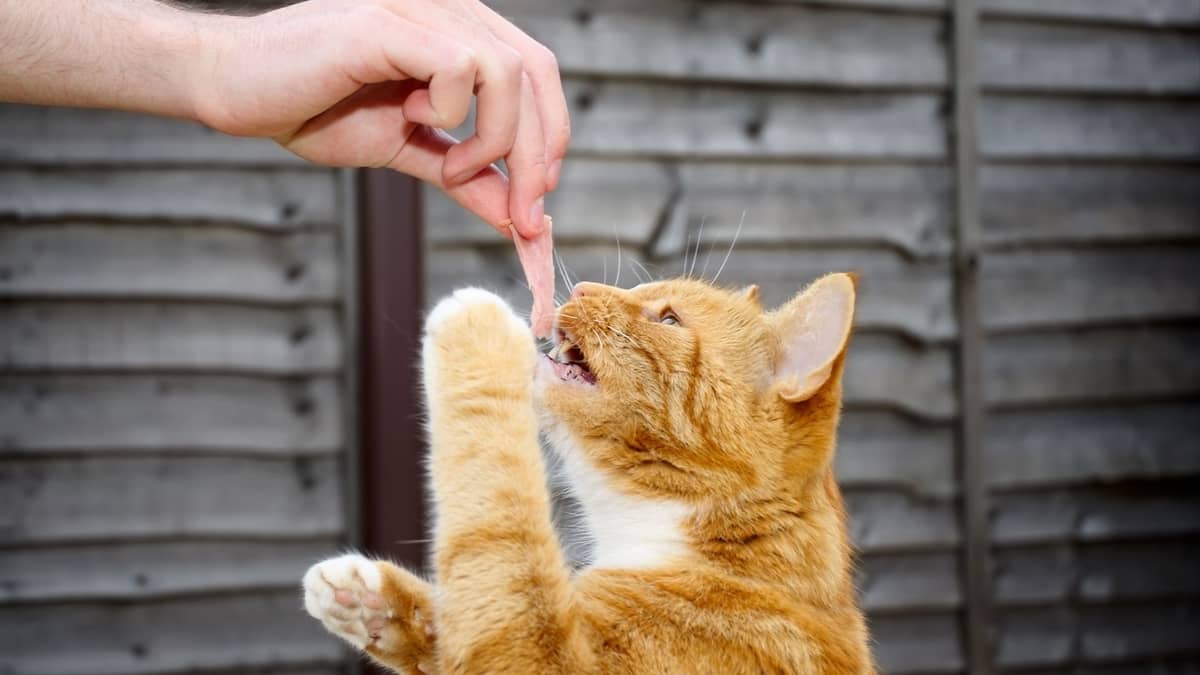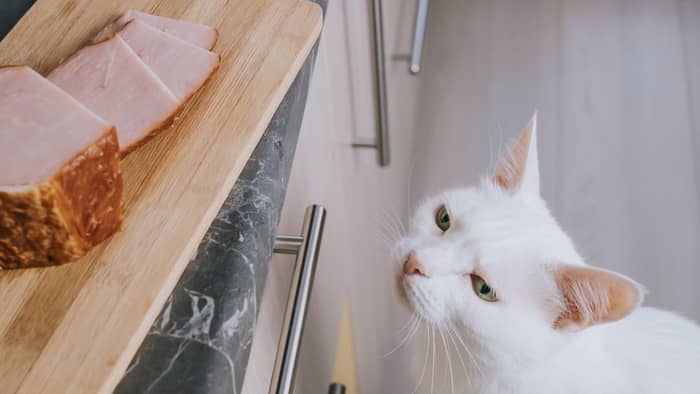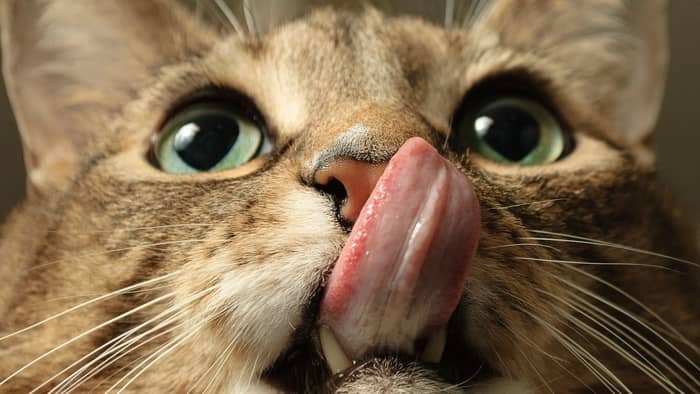Before I fed some to my cats, I asked myself if cats can eat turkey ham. I’m glad I did because what I learned about feeding ham to cats shocked me!
I always thought cats could eat any meats or fish without issues. Luckily, my friend was with me when I wanted to give my cats some turkey ham for the first time, and she questioned whether it was healthy. Her doubt made me do the same, and I immediately set out to find an answer.
IMPORTANT: At stuffaboutcats.com, we regularly consult with licensed veterinarians and other industry experts. However, the information found on stuffaboutcats.com should not be viewed as veterinary advice. We do our best to help you better understand your cats, but the information on this blog is not a substitute for veterinary guidance.
In this article, I share with you what I found out! If you want your cat to stay healthy, you need to know which foods are safe for them to eat and which are better to avoid.
Can Cats Eat Turkey Ham?
Ham is non-toxic to cats, so yes, they can eat it. But, it isn’t the best meat to feed them.
Cats need protein to stay healthy and happy, but not all protein sources are good for them. Turkey ham is made with processed meat, lots of spices, and binders. All of these can be harmful to your cat.
If you want to include turkey ham in your cat’s diet, you’ll have to be really careful with what type you buy. You should inspect all the ingredients in the ham and validate their safety before offering any to your cat.
How To Safely Feed Turkey Ham To Your Cat
You can offer turkey ham to your cat as an occasional treat. It should not exceed 10% of your cat’s daily food since it contains some ingredients that may make your cat sick.
To safely feed your cat turkey ham, look for a ham that:
- Is boneless
- Has been cooked through
- Has a low-sodium content
Turkey hams to avoid
To be extra safe, you should avoid turkey ham that:
- Is coated in pan drippings
- Contains chives, garlic, leeks, onions, shallots, and scallions
- Contains lemongrass, marjoram, oregano, or tarragon
- Has not been baked, cured, or smoked
I recommend cooking turkey ham for your cat at home to be absolutely safe.
Side Effects When Cats Overeat Turkey Ham
If your cat eats too much-processed turkey ham, they might experience some issues. You should keep an eye out for these signs:
- Appetite loss
- Diarrhea
- Lethargy
- Pale gums
- Blood-like urine
- Weakness
- Vomiting
Your cat may experience these symptoms if they’re having a bad reaction to the seasonings and preservatives in the ham. The high salt concentration in processed turkey ham also leads to these problems.
If you notice any concerning behavior after your cat has eaten turkey ham, you should take them to the vet!
Some cats won’t have a bad reaction to turkey ham no matter how much they eat. If you’ve served your cat ham before and they didn’t experience any issues, you don’t have to monitor them every time they eat it.
You should just keep ham out of their reach so they won’t eat some without you knowing. Providing them with lots of water is also a good idea since ham can cause dehydration in cats.
The Health Benefits Of Turkey Ham For Cats
When given in safe amounts, turkey ham can actually be good for your cat.
Turkey ham is high in protein and also contains taurine. Protein should make the bulk of your cat’s diet, and when you add ham to their bowl, you boost their protein intake. Taurine is an essential amino acid that can improve your cat’s eyesight.
Besides these benefits, ham is also linked to healthy bone growth, muscle gains, and strong teeth. Turkey ham also contains phosphorus, ensuring that your cat’s central nervous system, kidneys, and liver function properly.
Creative Ways To Serve Turkey Ham To Your Cats
I like making my cats’ meals intriguing when I add a food type they haven’t had before. Here are some ideas you can try when introducing turkey ham to your cats:
- Make your own wet cat food
- Blend it into a thick slush
- Shred and spread it over, under, or in between dry cat food
- Slice it into tiny cubes and offer it as a treat
You should keep portion sizes as small as the palm of your hand, no matter which serving idea you use. You mustn’t replace entire meals with turkey ham or use it excessively when mixing it with another food.
To Sum It Up
Turkey ham is a protein-power food with many other nutrients that make it even better! Occasionally feeding your cat ham can be beneficial to their health, widen their accepted food range (since cats tend to be very picky eaters!), and help them gain healthy muscle and brain weight.
You should always err on the side of caution when buying turkey ham and choose one with the least amount of preservatives, spices, and especially salt.
If you feel like it, you can cook your cat turkey ham at home. Doing so is the healthiest option because you’ll have complete control over the ingredients. I plan to start cooking ham at home for my cats.
I hope this article answered all your questions about feeding your cat turkey ham. If anything is missing, feel free to leave a comment, and I’ll answer the best I can.
Read more about Fresh Veggies For Cats: Can Cats Eat Bok Choy?
FAQs
Can cats eat deli turkey meat?
You should only feed your cat deli turkey if it's the unprocessed type. Processed deli turkey has tons of additives that aren't good for cats.
How much ham can a cat eat?
Your cat should only eat a few small pieces of ham per serving. You can use the palm of your hand as a measuring unit. Ham should never replace a meal.
What meat should cats not eat?
You should never feed your cat raw meat. Before serving it, you must also double-check that you've removed all bones and skin.
Does ham give cats diarrhea?
Ham is fatty and high in sodium, which can cause digestive issues for your cat, like diarrhea.
Find more information about Can Cats Eat Turkey Lunch Meat?


